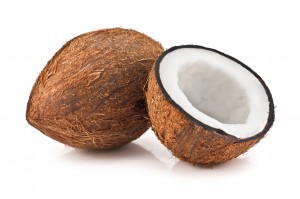These days braving your local coffee shop means answering a barrage of questions. Would you like 2%, whole milk or half and half? Yes. Whipped soymilk? Sure. One pump or two? Pump me. Eventually you may even escape with something trendy called a “skinny carmelcachino”—a cousin to coffee topped with foam and elegantly drizzled sauce.
A stroll down the grocer’s aisle assails your senses with enough “low-carb”, “low calorie”, “light”, “baked”, “less fat”, “skinny”, “half fat”, “sort of halfway fat” options to confuse the fat cells right off your midsection. But is fat truly our number one weight loss foe? A little research delivers some unexpected answers.
Know Thy Enemy
Fat is indeed functional! It stores energy, transports essential vitamins, protects our organs and regulates those pesky hormones. It is necessary for milk production in nursing mothers and normal body development in children. Overconsumption of fat can also raise cholesterol levels, creating the fatty deposits in your blood vessels that are the precursor to heart attacks and death. Fat can be all nice one second, and a complete a**hole the next.
Fortunately there is a way to monitor your health by keeping track of the kinds of fats you consume regularly. Research indicates that saturated fats, found in products like butter, cheese, whipped cream and other animal byproducts, are a major cholesterol booster. Remember that carmelcachino? Yeah, bad plan. The trans fats that heighten our risk for cardiovascular disease are mostly created during food processing and the partial hydrogenation of unsaturated fats. Why ruin a perfectly good unsaturated fat? Trans fats are easier to cook with and harder to spoil—so companies can keep their products on shelves and in trucks for longer periods of time, without wasting much merchandise.
Nuts and olives are two major containers of monounsaturated fats. Research shows that monounsaturated fat plays a key role in regulating blood sugar and cholesterol in the body. Studies also dictate that polyunsaturated fats, found in products like fish and seeds can lower your low-density lipoprotein cholesterol (LDL)—the kind that creates clots in arteries causing heart attack and stroke. These are the healthy fats that keep even athletes’ bodies functioning at an optimal level.
Surprise! We Were Wrong
With scientists generating new research all the time, some widespread theories about fat are being debated again. Here are a couple of buzz-worthy topics:
-Coconut oil, a widely popular product among Pacific islanders has long been regarded as a high-risk food due to its high saturated fat content. Conflicting research has indicated that its properties in fact improve heart health, boost thyroid activity, increase metabolic function and support the immune system.
-Three or more apples a day may not keep the doctor away. Really, eating anything in excess can be problematic. Some fruit-crazy fad dieters fail to realize that natural or not—sugar is sugar! As we know, excess glucose is eventually converted into fatty acids. And fatty acids lead to those body parts gossip magazines circle on pictures of celebrities running down the beach. Most fitness experts will tell you to stick with berries, as they are nutritionally valuable and antioxidant rich.
The Fact about Fat
The most important part of deciding anything—whether you are selecting groceries or carefully composing your next tweet—is to stay accountable for your actions. The more thinking you do in advance, the likelier you are to look lean and tweet sexy. Your body and health is a direct reflection of personal choice, so when it comes to fat, make sure you read between the lines!



 Facebook
Facebook Twitter
Twitter Youtube
Youtube Instagram
Instagram Pinterest
Pinterest